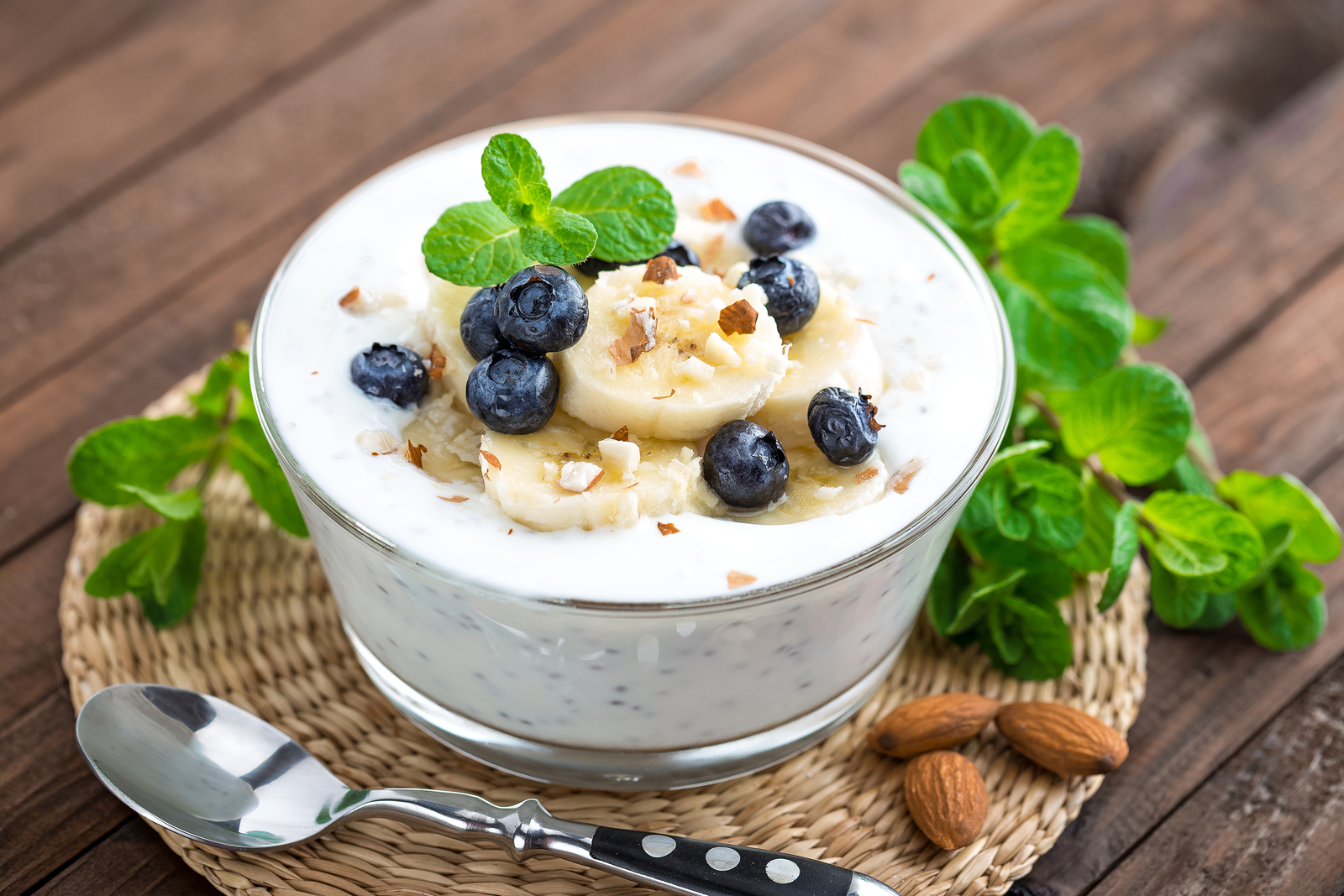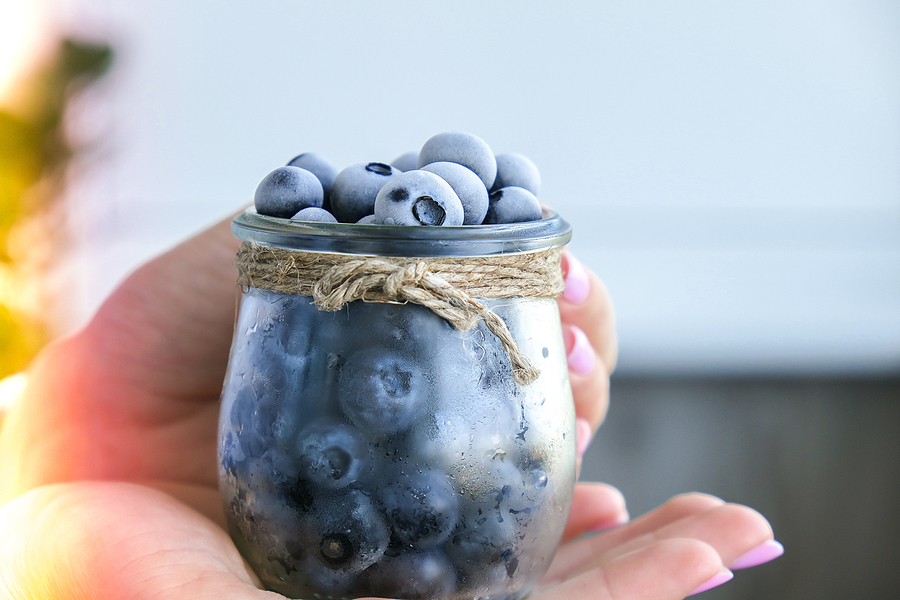Do you have gut issues? If so, you certainly aren’t alone! And we know so much more these days about how gut health is connected to other serious health problems. Research is showing that when your gut flora is imbalanced, you are so much more likely to have cramps, PMS symptoms, even PCOS. It’s clear to me, then, that the gut is intricately connected to hormonal health.
The good news is there are ways you can naturally support your gut to restore balance to the microbiome, which contains trillions — yes, trillions — of bacteria. Not all bacteria is bad. In fact, one of the most recommended initial treatments for patients with digestive difficulties is taking a probiotic.
You probably have some idea what a probiotic is since people have been talking about them for years now. But what about prebiotics? Have you heard that term? If so, did you think it was a mistake? You may have assumed it was more news about probiotics, but I want you to know that prebiotics are different – and perhaps equally as important as probiotics.
In fact, the two work together in a symbiotic relationship, so if you have one but not the other you aren’t reaping all possible benefits. Each is an important team player in the digestive process, and when they work together, you can feel your best. Let’s take a look at how that works.
What is the Difference Between Probiotics and Prebiotics?
It can be confusing to understand all of the internal relationships that make your body healthy, so I’ll try to explain the difference with a simple analogy I’ve often heard. Picture prebiotics as the fertilizer in your garden soil, and the probiotics as the plants which grow in the rich, healthy soil. The role of prebiotics is to nurture and encourage probiotics to grow and multiply.
Probiotics are living organisms, the actual “good” bacteria we need in our guts. When this bacteria is depleted, eating foods or taking supplements to replace them is essential – but that doesn’t go far enough. Although adding 5 billion units through a supplement may sound like plenty, your gut needs trillions to function properly.
That’s where prebiotics come in to play. Prebiotics are plant fibers that pass through your system undigested until they reach the colon, where they are fermented, helping probiotics flourish and bring you back into balance much more quickly than a probiotic alone can.
Why Would I Encourage Growth of Bacteria?
If you’re just starting to explore how your digestive system works, you might be startled to hear that I am suggesting you add bacteria. Many people think bacteria is something to fear, the cause of illness and disease. But you actually have more bacteria than cells in your body, and some of them are essential to good health. In fact, you have 100 trillion bacteria in your body, and it’s a classic case of good vs. bad. You need some types of bacteria to keep the invaders in check. And it’s those “good” bacteria that you replace with probiotics.
Research supports the benefits of using probiotics to increase nutritional value of food, promote better digestion, speed recovery from diarrhea, prevent intestinal tract infections, regulate the gut, enhance the immune response system, promote growth, and decrease cholesterol concentrations, reduce blood pressure and much more.
There is less research on the benefits of prebiotics, but one recent study found that dietary prebiotics can have a significant impact on both rapid-eye-movement (REM) and non-rapid-eye-movement (NERM) sleep cycles, which could promote better quality sleep. Since sleep is so essential to good health, this is another exciting reason to be sure you introduce enough prebiotics into your system.
Gut health, as I said before, is connected to so many other health issues. Let’s take a look at what current research has found about the connection between a healthy gut and disease.
How Balanced Gut Flora Can Impact Health
I know it may seem strange to connect the bacteria in your gut to your overall health, but research indicates that this bacteria is connected to a wide range of diseases. Potential impact on digestive disorders like Irritable Bowel Syndrome, Crohn’s disease, and leaky gut syndrome; diabetes; depression; obesity; and even colon cancer are just a few of the connections that have been made; and that’s just what we know now. More research is becoming available all the time.
Your gut contains between 300 and 500 different types of bacteria, which along with other microorganisms like fungi and viruses make up your gut microbiome. This microbiome is different in every person, and is determined by a combination of genetics, diet and lifestyle. Every person’s microbiome has a huge impact on their digestive health, which in turn affects so many other body functions, including metabolism and immune system functioning.
Current research shows that healthy people have different gut bacteria than those with specific diseases. It all comes down to balance, and the gut flora in unhealthy people can be imbalanced in a number of ways. They may have too much or a particular type of bacteria, or too little. They may not have enough variety in the bacteria in their gut. Remember I talked about “good” and “bad” bacteria? If you come down heavily on the side that raises risk, you’re more at risk of developing serious illness.
That’s where probiotics and prebiotics can help. By making sure you are nurturing the bacteria you want — while at the same time fighting off those you don’t – you can keep your gut healthy
Related article: How to Heal Your Gut Naturally Using the 5-R Protocol
Natural Sources of Probiotics and Prebiotics
You can get both probiotics and prebiotics in supplement form, and sometimes that is the easiest way to support your gut quickly. But that doesn’t mean that what you eat doesn’t matter. As I’ve often said, food is the best medicine we have. Supplements are intended to work with your healthy routine, not replace good nutrition choices! Here are some great sources of each.
Fermented Foods Are Great Probiotics
Variety is important when you’re adding probiotic foods to your diet. There are many different types of beneficial bacteria, and the more variety you have in your foods, the more balanced these bacteria will be.
The most well-known probiotic food is yogurt. Unsweetened yogurt is best, and can be enjoyed on its own or with healthy add-ins like fresh fruit, nuts or seeds. Cultured vegetables like sauerkraut and kimchi are another great way to add probiotics to a meal. If you prefer to get your probiotics from beverages, try kefir, coconut kefir, or kombucha. Other great foods rich in probiotics include tempeh, miso, kimchi, and raw cheeses.
Eat These Foods Often for a Prebiotic Boost
Prebiotics come from the fiber in certain vegetables and other foods that pass through the digestive system intact and are fermented in the colon, providing energy to probiotics. While the list of top prebiotic foods may seem short, some of the best sources – like garlic, onions and leeks – are easy to add to a wide range of recipes. Others, like Jerusalem artichoke, jicama, raw asparagus, and dandelion greens make a great addition to salads. Most provide benefits only when consumed raw; onions are the most versatile source, since they provide prebiotic benefits raw or cooked. Bananas can be a good source of prebiotics if they are consumed when they are not quite ripe. Add them to smoothies if eating them under-ripe doesn’t appeal to you. Chicory root can be used in baking, pickling, and as a coffee substitute. Acacia gum is found in many products, and you can easily add the powdered form to smoothies.
Is There a Downside to Taking Probiotics and Prebiotics?
If you are getting your probiotics and prebiotics from food sources it’s very unlikely that you will consume too much. However, you may experience some uncomfortable side effects like gas and bloating, so you have to be sensitive to how your body responds to specific foods.
You should always speak to your health care provider before beginning to take supplements of any kind to determine if there are risks in your unique situation.
It’s also worth noting that it’s essential to vary the probiotic strain you are consuming every now and then, to be sure one bacteria doesn’t dominate. Remember, a balance of bacteria provides optimal gut health!
Make Sure Your Gut Gets Everything It Needs — Including Probiotics and Prebiotics!
There are so many things you can do to boost your health, but it can be confusing, especially when some of the words we use are so similar. That’s why it’s important to understand the differences between probiotics and prebiotics – and how each can impact your overall health. My goal is to help you build that understanding and support your body fully to achieve the best gut health possible.
Even if you are eating well and living a healthy lifestyle, it can be difficult to maintain the right balance in your gut, especially if you’ve been out of balance for years without even knowing it. That’s why supplementing with a quality probiotic and other digestive supports can be so helpful. Once you have a healthy gut, your overall health can thrive as well, leaving you feeling better than you have in years – or maybe even ever!
My Delayed Symptom GI Relief Program is specifically designed to support a healthy immune system, optimally balance gut microbiota, alleviate ongoing digestive issues that present after eating, replenish probiotic organism, improve digestion, and encourage maximum nutrient absorption. If you suffer from ongoing digestive issues, this might be just what you need to reboot your system and feel better!
References:
https://www.healthline.com/health/prebiotics-vs-probiotics
https://sciencelife.uchospitals.edu/2014/11/25/do-probiotics-work/
https://patient.info/doctor/probiotics-and-prebiotics
https://www.webmd.com/digestive-disorders/what-your-gut-bacteria-say-your-health#2








